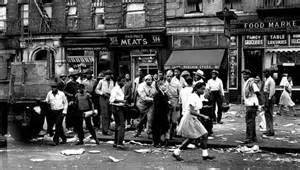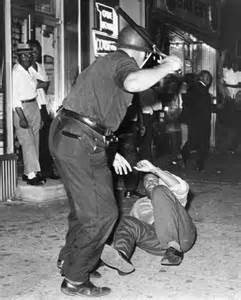My father, Reginald W. Major, died just over three years ago. While his passing has left me, his baby girl, with a tremendous void, l recently discovered a collection of audio tapes that we recorded over a period of years. I have found myself able to listen to him once again, getting his wisdom on political struggle, his honesty about his own shortcomings, on how he grew character and understanding, on his long view of history from the 1930’s to 2011. Once again I find myself feeling his indomitable spirit and laughing because of his infectious sense of humor.
There is a part of me that wished I could say that this came about because I found a way to channel his voice from whatever universe now may hold his spirit, but it is far simpler, I have begun to transcribe the tapes, began in 2001 that we sporadically made when I realized he would never write his own life story. We would come together at arbitrary times cooking, dining, sharing a bottle of wine and yes some cannabis, and without realizing it at the time, we captured a unique history that reflects the complexity of the American experience.
As I listen to the tapes I see the value, indeed the need, to turn them into a book. I am not sure what the book will look like that evolves from these tapes. My father’s life had many parts of the American dreams from the worms to the glory. A child of West Indian immigrants raised in New York from the depressions years, his story includes riots of 1943 New York, military life, an interracial marriage began in the 1940’s, racism, world travels, his growth into a writer and journalist with a clear political ideology, resistance and revolution, and infinite love for his people and his close friends and family.
The tapes are replete with individuals who have in their own ways helped to build, shake up, or change the world. Some figures are international in scope–James Baldwin, Kathleen and Eldridge Cleaver, Alice Walker, Thelonious Monk et al. Others are people who made a mark in the San Francisco Bay Area like Nathaniel Burbridge, once president of the local NAACP who was told by the national office that they would strip his chapter’s charter if it continued to take on such radical actions…Betwixt and between are the family stories, the love stories, the stories of his adventures as a world traveler, his commitment to revolutionary change.
I am feeling my way through his life and I invite you on this journey which I hope you will find of value. I also hope that as I share pieces of these tapes you find or buy your own tape recorders, go to an elder in your family or community and gather their stories. There is no greater gift for yourself, your family, and possibly the greater public. My father is a part of the people’s history which is too often untold or mis-told. Welcome to the journey of the tapes.
1943 Harlem Riots: The Feeling of Freedom
My father was seventeen and ready to leave home. A friend was urging him to run away from parents who were loving but stern. They believed in severe corporal punishment as well as the recitation of long passages of the bible for any misdoings. It was a hot summer weekend and my father’s parents were out of town. As my father was thinking about his own personal freedom he heard loud noises outside his fourth floor apartment window. It was the beginning of a two day uprising in Harlem.
As I transcribe these tapes one of the things that consistently amazes me is the accuracy of my father’s internal chronology. He told me he thought it was August 3, 1943 when they “jumped off.” When I researched the facts I discovered that despite over fifty years of distance from the event he was almost correct. The riot occurred on the first and second of August in 1943.
My father described the riot as occurring at a crossroads between race and morality, the solder and the (possible) prostitute, and the policeman. News sources vary in the story details but what is clear is that a Robert Bandy, a Negro soldier, came to the aid of a young Negro woman who was being accosted by a police officer in the lobby of the Braddock Hotel. Bandy was trying to stop what he perceived of as unreasonable harassment. As Langston Hughes wrote:
“If Margie Polite
Had of been white
She might not’ve cussed
Out the cop that night…
She started the riots!
Harlemites say
August 1st is
MARGIE’S DAY.”
The policeman ended up shooting the soldier. He was taken by ambulance to the local hospital where over three thousand people stood watch outside awaiting the outcome. My father’s view of the riot was, however, very personal:
“The rumor was that the brother had died. Harlem went up! There was radio, but this wasn’t big communication times. The rumor went up by jungle telephone.
Now I lived at 117th street between 5th and Lennox. My parents were out that weekend. I was home and I heard all this noise and broken glass. I looked out the window and I could see all these people. My parents weren’t home so I went down to the corner.
On our side of the block there was a Woolworths and next to that place there was a dude who made hats, but he wasn’t making enough money making hats so he put in a line of liquor. I hit the corner just when these brothers hit that store. Boom! They went in there and came out with liquor and hats.

People are looting. I look across the street and three doors down from the corner is the A&P. This is a Sunday night and I am standing in front of the A&P wondering where to go next when somebody threw a rock through the window. At that moment these two sanctified sisters walked down the street and one sister said to the other sister, “Look what the Lord done sent.” That’s a direct quote. “Sister look what the Lord done sent,” and they headed straight in after beckoning me.
Now, most young kids at that point were shopping bag kids. That is we sold shopping bags and we made a little money bringing packages home. Sisters would go shopping and we’d take the groceries and they would tip us and so forth.
Now all hell is breaking loose and these sisters stood there and calmly shopped.
“Sister have you tried this salmon?”
“Oh no, I really have always wanted too.”
And they were calm, cool and serene and there wasn’t too much looting and stuff. It was just groceries. People would come in, snatch a can of beans or something and run. Not these sisters. They shopped and I carried their groceries home for them, was paid and went home.
There was something about just the free spiritedness of the riot. It really got to me.
After 6,600 cops, 8,000 state guardsmen, and 1500 (mostly Negro) civilians armed with nightsticks and armbands brought pressure on the neighborhood the rioting dwindled and stopped.
The rage which had been detonated by the belief that there had been another police murder was a reaction to the oppressive poverty, relentless police harassment, ill treatment of Negro soldiers, lack of employment opportunities and, of course, racism. In the end six Harlemites were killed, five through police violence, and another 400 hundred were wounded. Over 1200 were arrested.

As for the free spiritedness my father spoke of, two weeks later he did indeed leave home.
Editor’s Note: This month Devorah Major posted two new transcriptions of her conversations with her late father at http://www.devorahmajor.com/.